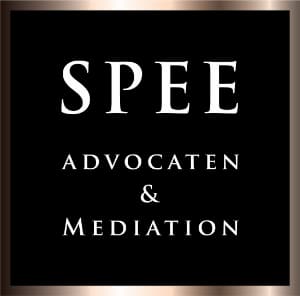The legislator is taking a new step in tackling undesirable behaviour in the workplace. A bill proposes adding a new article to the Working Conditions Act: Article 5a. This will make it a legal requirement for employers to draw up a code of conduct against undesirable behaviour. This is an important development in employment law, with direct consequences for everyday practice within organisations.
What does the bill entail?
The bill aims to add an Article 5a to the Working Conditions Act. Under this new article, every employer must have a written code of conduct against undesirable behaviour. This code of conduct must include at least the following:
- a clear description of undesirable behaviour, such as bullying, discrimination, (sexual) harassment, aggression and violence;
- the sanctions or measures that will be taken if such behaviour occurs or is repeated.
.
The code of conduct must also be understandable and accessible to all employees.
Why this change in the law?
The existing obligations under the Working Conditions Act – in particular Article 3 (duty of care) and Article 5 (Risk Inventory and Evaluation, or RI&E) – already require employers to implement a policy aimed at preventing psychosocial stress at work. In practice, however, it appears that these obligations are not being implemented in a sufficiently concrete manner and that policies on undesirable behaviour are often lacking or not properly embedded in the organisation.
The introduction of Article 5a aims to change this. The legislator wants to explicitly oblige employers to draw up a (written) code of conduct so that the policy against undesirable behaviour in the workplace is clear, verifiable and enforceable. This should also contribute to social safety and make it easier to discuss inappropriate behaviour within organisations.
What is the status of the bill?
The bill was published for internet consultation on 17 February 2025. The consultation period ran until 23 March 2025. The Netherlands Institute for Human Rights and the Council for the Judiciary, among others, have since issued their opinions. The responses have been predominantly positive, although attention has been drawn to the feasibility and the need for clear definitions of undesirable behaviour.
At present, the bill has not yet been submitted to the House of Representatives and has therefore not yet been formally taken up for consideration. The legislator has set 1 July 2026 as the intended date of entry into force. This date is, of course, dependent on further parliamentary consideration and publication in the State Gazette.
What does this mean for employers?
If the bill is passed, employers will be legally obliged to draw up a code of conduct against undesirable behaviour. This requires not only the drafting of a written document, but also attention to its implementation within the organisation: informing employees, embedding it in internal regulations and periodic evaluation.
Failure to comply with the new obligation may result in enforcement by the Inspectorate SZW, such as warnings or fines. In addition, the absence of a code of conduct may also have civil law consequences, for example in the event of a labour dispute or liability for damage caused by inappropriate behaviour.
How can the employment lawyers at SPEE advocaten & mediation help you?
SPEE advocaten & mediation advises and supports employers in drawing up, updating and implementing codes of conduct and policies in the field of social safety. We ensure that your policy complies with current and future legal requirements and is in line with the culture and risks within your organisation. We also assist employers with internal investigations, complaints procedures and sanctioning processes in the event of (alleged) inappropriate behaviour.
Would you like to anticipate the new obligations or have your existing policy reviewed? Please feel free to contact us.
